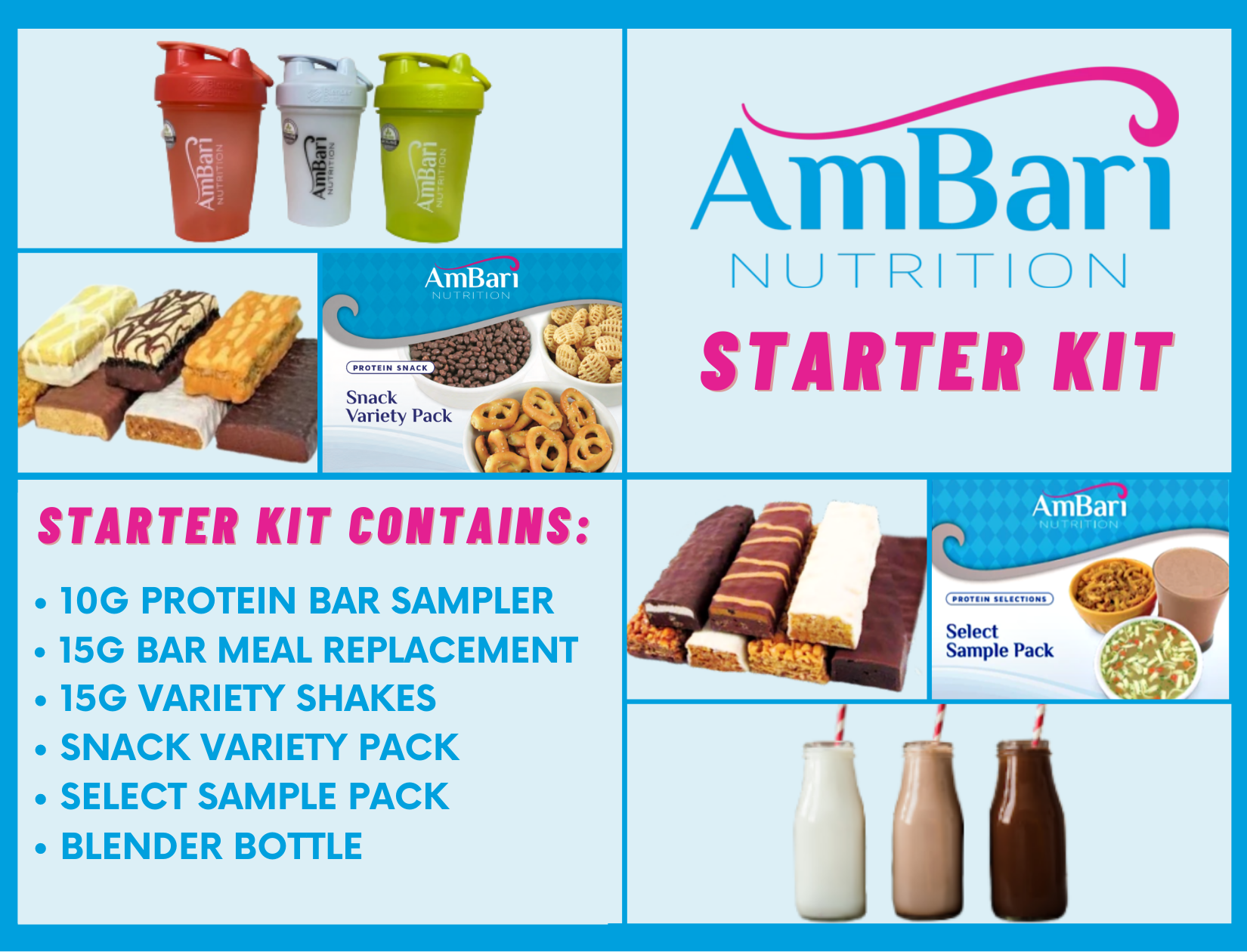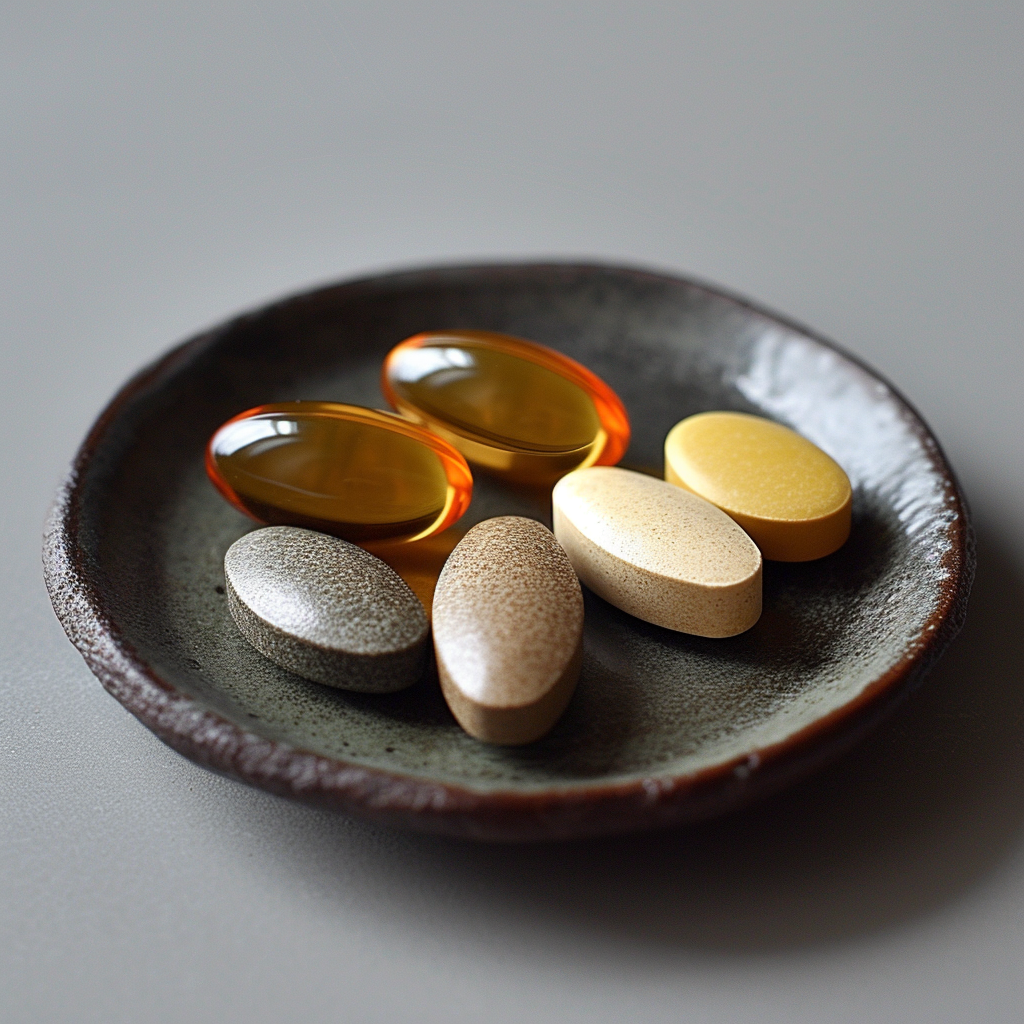Menu
Your cart is empty
Looks like you haven't added anything to your cart yet

Understanding the Need for a Bariatric-Like Diet for Semaglutide Patients
Semaglutide, a medication used for the treatment of type 2 diabetes, has shown significant promise in aiding weight loss, particularly in patients who have experienced weight regain after bariatric surgery. This medication, which includes brands like Ozempic and Wegovy, mimics the hormone GLP-1 to regulate blood sugar levels and has additional effects that can influence diet and weight management. Given the parallels in outcomes between semaglutide use and bariatric surgery, it is beneficial for patients on semaglutide to follow a diet similar to a post-bariatric surgery diet.
See Also:
The Link Between Semaglutide and Bariatric Principles
Semaglutide has been found to be effective in managing weight regain years after bariatric surgery. It works by delaying gastric emptying and preventing the release of glucagon, which helps in reducing blood sugar spikes. Moreover, semaglutide has been shown to reduce cravings and help patients resist them, which aligns with the goals of a bariatric diet.
Key Benefits of Semaglutide Similar to Bariatric Surgery:
- Weight Loss: Patients on semaglutide have experienced significant weight loss, similar to those who have undergone bariatric surgery.
- Appetite Suppression: Semaglutide reduces hunger and cravings, which is a common goal in bariatric dietary guidelines.
- Improved Eating Habits: It helps in controlling portion sizes and reducing the preference for high-fat foods.
Dietary Recommendations for Semaglutide Patients
Given the similarities in the effects of semaglutide and bariatric surgery on weight management, it is recommended that patients on semaglutide follow a diet that incorporates bariatric principles. This diet should focus on:
- Small, Frequent Meals: To accommodate the delayed gastric emptying caused by semaglutide.
- High-Protein Foods: To maintain muscle mass and promote satiety.
- Low-Carbohydrate and Low-Fat Choices: To reduce calorie intake and support weight loss.
- Hydration: Adequate fluid intake is essential, but patients should avoid drinking fluids with meals to prevent stretching the stomach.

Sample Dietary Structure for Semaglutide Patients:
| Time of Day | Meal Type | Suggested Foods |
|---|---|---|
| Breakfast | Protein-rich | Scrambled eggs, Greek yogurt |
| Mid-Morning Snack | Low-carb | Almonds, cheese |
| Lunch | Balanced | Grilled chicken salad with leafy greens |
| Afternoon Snack | Protein-focused | Protein shake or hummus with veggies |
| Dinner | Nutrient-dense | Steamed fish with steamed vegetables |
| Evening Snack | Light | Cottage cheese or a small piece of fruit |
See also: Sample Bariatric Meal Plan
The Importance of a High-Protein Diet for Semaglutide Patients
Semaglutide, a medication used for managing type 2 diabetes, has been found to aid in weight loss. However, to maximize its benefits and maintain lean muscle mass, it's so important for patients on semaglutide to follow a high-protein diet.
The Role of Protein in Preserving Lean Muscle Mass
Protein plays a vital role in preserving lean muscle mass, especially during weight loss. When the body is in a caloric deficit, it can start breaking down muscle for energy. Consuming sufficient protein can help prevent this, ensuring that the body loses fat rather than muscle.
Dr. Kevin Huffman, a Bariatric Physician, emphasizes the importance of protein in a semaglutide diet:
"We all know how important it is to consume protein, but it is even more valuable for someone taking Semaglutide to eat lean protein for every meal. Adding protein to your diet helps reduce blood sugar spikes post-meal, enhancing your feeling full to avoid overeating".
Benefits of a High-Protein Diet
A high-protein diet offers several benefits for semaglutide patients:
- Preserves Lean Muscle Mass: Adequate protein intake helps maintain muscle mass during weight loss.
- Controls Blood Sugar Levels: Protein helps reduce post-meal blood sugar spikes.
- Promotes Satiety: Protein-rich foods can enhance feelings of fullness, helping to prevent overeating.
Protein Intake Recommendations
Most experts recommend consuming 0.8-1 gram of protein per pound of body weight daily during semaglutide treatment. Here's a table showing the protein recommendations based on body weight:
| Body Weight (lbs) | Recommended Protein Intake (grams) |
|---|---|
| 120 | 96 |
| 150 | 120 |
| 180 | 144 |
| 200 | 160 |
| 220 | 176 |
| 250 | 200 |
| 270 | 216 |
It's recommended to consume protein evenly throughout the day, with about 25-30 grams at each meal and snack. Protein can be obtained from whole foods like poultry, fish, seafood, eggs, Greek yogurt, cottage cheese, beans and lentils, nuts, and seeds. Convenient products like protein shakes and protein bars are a great way to supplement your protein intake.
Conclusion
Patients on semaglutide can benefit from adopting a diet similar to that recommended after bariatric surgery. This approach supports the medication's weight loss effects and helps manage appetite and food intake. It is important for patients to work with healthcare providers to tailor their diet to their individual needs and to ensure they receive adequate nutrition while on semaglutide therapy.
Here's a great follow-up reading: A Wegovy Diet Plan
Writer: Allison Allison is a seasoned nutritionist and writer with over 15 years in health and weight management. She's authored journals on medical weight loss and bariatric medicine, and has specialized in bariatric foods. |
Reviewed By: Dr. K. Huffman Dr. Kevin D. Huffman, D.O., is a board-certified bariatric physician renowned for his expertise in treating obesity. With over 10,000 patients and a reputation as a national leader in bariatric medicine, he has trained hundreds of healthcare providers. Dr. Huffman develops protocols and training materials sought after by medical societies, pharmaceutical companies, patients, and hospitals. |
- Choosing a selection results in a full page refresh.



































